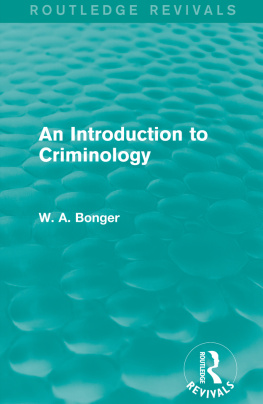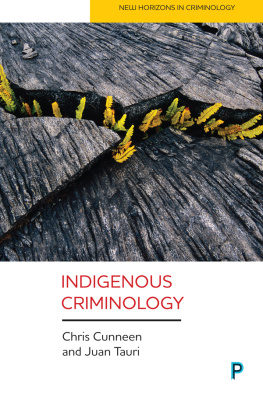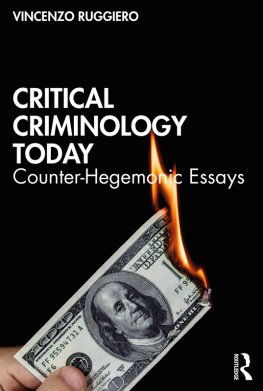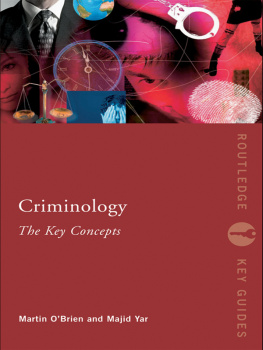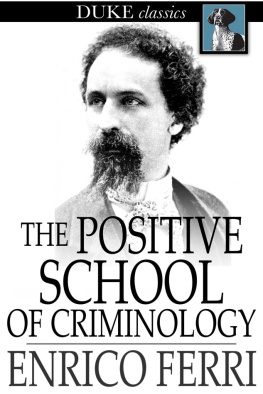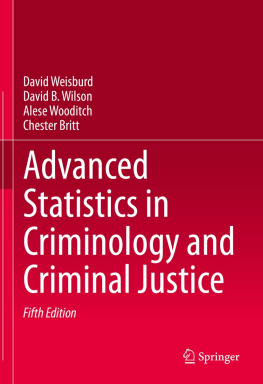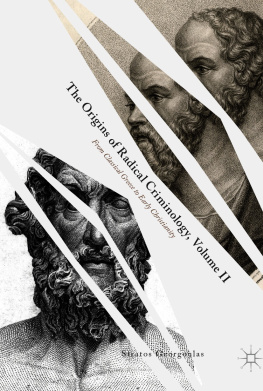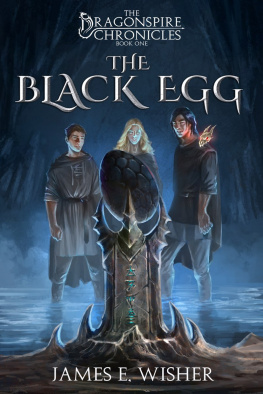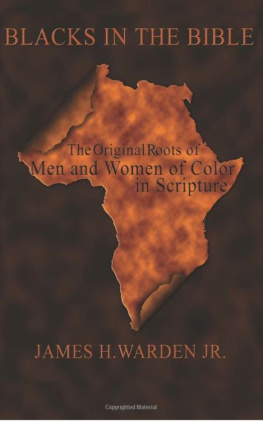
Building a Black Criminology
In light of the Black Lives Matter movement and protests in many cities, race plays an ever more salient role in crime and justice. Within theoretical criminology, however, race has oddly remained on the periphery. It is often introduced as a control variable in tests of theories and is rarely incorporated as a central construct in mainstream paradigms (e.g., control, social learning, and strain theories). When race is discussed, the standard approach is to embrace the racial invariance thesis, which argues that any racial differences in crime are due to African Americans being exposed to the same criminogenic risk factors as are Whites, just more of them. An alternative perspective has emerged that seeks to identify the unique, racially specific conditions that only Blacks experience. Within the United States, these conditions are rooted in the historical racial oppression experienced by African Americans, whose contemporary legacy includes concentrated disadvantage in segregated communities, racial socialization by parents, experiences with and perceptions of racial discrimination, and disproportionate involvement in and unjust treatment by the criminal justice system.
Importantly, race specificity and racial exceptionalism are not mutually exclusive perspectives. Evidence exists that Blacks and Whites commit crimes both for the same reasons (invariance) and for different reasons (race-specific). A full understanding of race and crime thus must involve demarcating both the general and specific causes of crime, the latter embedded in what it means to be Black in the United States. This volume seeks to explore these theoretical issues in a depth and breadth that is not common under one cover. Again, given the salience of race and crime, this volume should be of interest to a wide range of criminologists and have the potential to be used in graduate seminars and upper-level undergraduate courses.
James D. Unnever is a Professor of Criminology at the University of South Florida Sarasota-Manatee.
Shaun L. Gabbidon is a Distinguished Professor of Criminal Justice at Penn State Harrisburg.
Cecilia Chouhy is an Assistant Professor in the College of Criminology and Criminal Justice at the Florida State University.
Building a Black Criminology: Race, Theory, and Crime
ADVANCES IN CRIMINOLOGICAL THEORY
Volume 24
Editors
James D. Unnever
University of South Florida, Sarasota Manatee
Shaun L. Gabbidon
Penn State Harrisburg
Cecilia Chouhy
Florida State University
Building a Black Criminology
Race, Theory, and Crime
Advances in Criminological Theory Volume 24
Edited by James D. Unnever, Shaun L. Gabbidon, and Cecilia Chouhy
First published 2019
by Routledge
711 Third Avenue, New York, NY 10017
and by Routledge
2 Park Square, Milton Park, Abingdon, Oxon, OX14 4RN
Routledge is an imprint of the Taylor & Francis Group, an informa business
2019 Taylor & Francis
The right of James D. Unnever, Shaun L. Gabbidon, and Cecilia Chouhy to be identified as the authors of the editorial material, and of the authors for their individual chapters, has been asserted in accordance with sections 77 and 78 of the Copyright, Designs and Patents Act 1988.
All rights reserved. No part of this book may be reprinted or reproduced or utilised in any form or by any electronic, mechanical, or other means, now known or hereafter invented, including photocopying and recording, or in any information storage or retrieval system, without permission in writing from the publishers.
Trademark notice: Product or corporate names may be trademarks or registered trademarks, and are used only for identification and explanation without intent to infringe.
Library of Congress Cataloging-in-Publication Data
A catalog record for this book has been requested
ISBN: 978-1-138-35372-5 (hbk)
ISBN: 978-0-429-42525-7 (ebk)
Typeset in Times New Roman
by Apex CoVantage, LLC
We dedicate our book to the three people who, through their unique contribution, made this book possible:
William Edward Burghardt (W.E.B.) Du Bois
Katheryn Russell-Brown
Francis T. Cullen
Contents
James D. Unnever and Akwasi Owusu-Bempah
Shaun L. Gabbidon
Francis T. Cullen, Cecilia Chouhy, Leah Butler, and Heejin Lee
James D. Unnever
Katheryn Russell-Brown
Steven F. Messner and Brian J. Stults
Kristin Swartz and Pamela Wilcox
John E. Eck
Callie H. Burt
Michael L. Benson and Jay P. Kennedy
Ben Feldmeyer and Joshua C. Cochran
Hannah D. McManus, Jillian G. Shafer, and Amanda K. Graham
Ojmarrh Mitchell
Paula Smith and Christina Campbell
Michael L. Benson is a Professor in the School of Criminal Justice at the University of Cincinnati.
Callie H. Burt is an Associate Professor of Sociology at the University of Washington.
Leah Butler is a Ph.D. student in the School of Criminal Justice at the University of Cincinnati.
Christina Campbell is an Assistant Professor in the School of Criminal Justice at the University of Cincinnati.
Cecilia Chouhy is an Assistant Professor in the College of Criminology and Criminal Justice at the Florida State University.
Joshua C. Cochran is an Assistant Professor in the School of Criminal Justice at the University of Cincinnati.
Francis T. Cullen is a Distinguished Research Professor Emeritus and Senior Research Associate in the School of Criminal Justice at the University of Cincinnati.
John E. Eck is a Professor of Criminal Justice at the University of Cincinnati.
Ben Feldmeyer is an Associate Professor in the School of Criminal Justice at the University of Cincinnati.
Shaun L. Gabbidon is a Distinguished Professor of Criminal Justice at Penn State Harrisburg.
Amanda K. Graham is a Doctoral Candidate in the School of Criminal Justice at the University of Cincinnati
Jay P. Kennedy is an Assistant Professor in the School of Criminal Justice at Michigan State University.
Heejin Lee is a Ph.D. student in the School of Criminal Justice at the University of Cincinnati.
Hannah D. McManus is a Doctoral Candidate in the School of Criminal Justice at the University of Cincinnati.
Steven F. Messner is a Distinguished Teaching Professor of Sociology at the University at Albany, State University of New York.
Ojmarrh Mitchell is an Associate Professor in the Department of Criminology at the University of South Florida.
Akwasi Owusu-Bempah is an Assistant Professor in the Department of Sociology at the University of Toronto.
Katheryn Russell-Brown is the Chesterfield Smith Professor of Law and Director of the Center for the Study of Race and Race Relations at the University of Florida, Levin College of Law.
Jillian G. Shafer is a Doctoral Candidate in the School of Criminal Justice at the University of Cincinnati.




